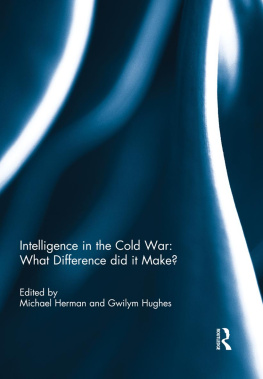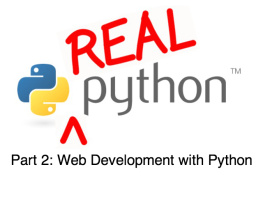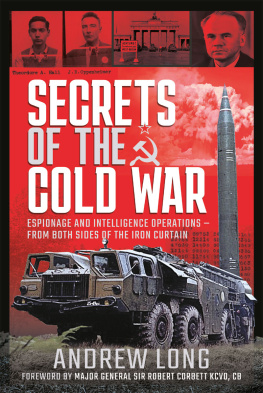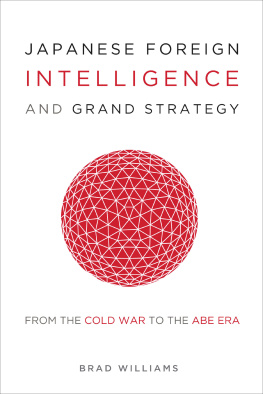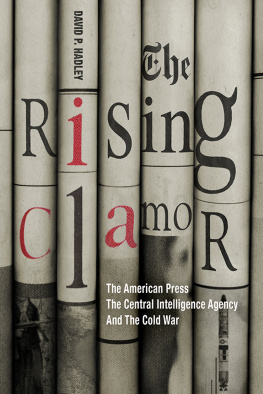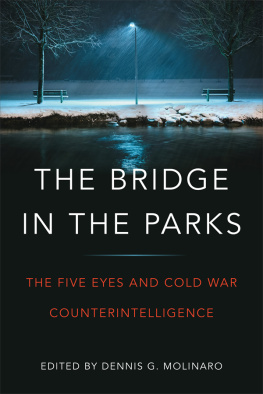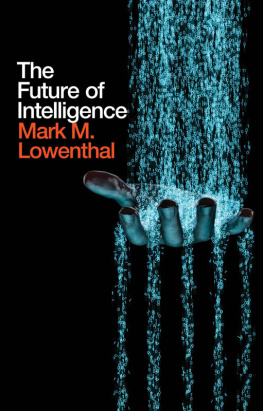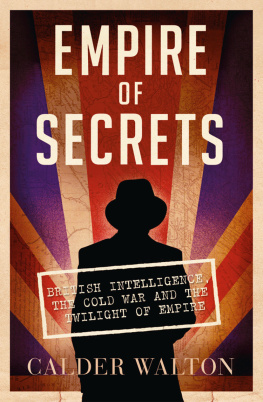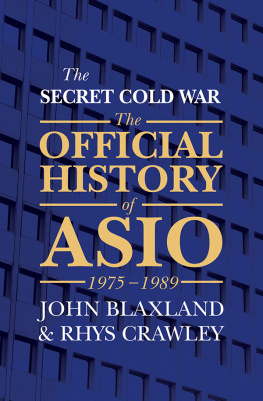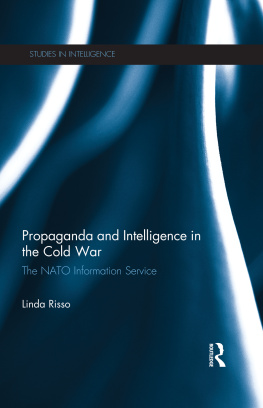Intelligence in the Cold War: What Difference did it Make?
Intelligence was a major part of the Cold War, waged by both sides with an almost warlike intensity. Yet the question What difference did it all make? remains unanswered. Did it help to contain the Cold War, or fuel it and keep it going? Did it make it hotter or colder? Did these large intelligence bureaucracies tell truth to power, or give their governments what they expected to hear?
These questions have not previously been addressed systematically, and seven writers tackle them here on Cold War aspects that include intelligence as warning, threat assessment, assessing military balances, Third World activities, and providing reassurance. Their conclusions are as relevant to understanding what governments can expect from their big, secret organizations today as they are to those of historians analysing the Cold War motivations of East and West. This book is valuable not only for intelligence, international relations and Cold War specialists but also for all those concerned with intelligences modern cost-effectiveness and accountability.
This book was published as a special issue of Intelligence and National Security.
Michael Herman is a former intelligence practitioner. His publications since his retirement in 1987 have included Intelligence Power in Peace and War published in 1996 and regularly reprinted. His principal academic association has been with Nuffield College, where he is still active as the Founder Director of the Oxford Intelligence Group. He is an Honorary D.Litt of Nottingham University.
Gwilym Hughes is Director of the Oxford Intelligence Group and a Fellow of Nuffield College Oxford. Formerly a member of the British Defence Staffs in Paris and Canberra, he is a graduate of the Royal Military College of Science, Shrivenham and the Australian Joint Services Staff College.
Intelligence in the Cold War: What Difference did it Make?
Edited by
Michael Herman and Gwilym Hughes
First published 2013
by Routledge
2 Park Square, Milton Park, Abingdon, Oxon, OX14 4RN
Simultaneously published in the USA and Canada
by Routledge
711 Third Avenue, New York, NY 10017
Routledge is an imprint of the Taylor & Francis Group, an informa business
2013 Taylor & Francis
This book is a reproduction of Intelligence and National Security, vol. 26, issue 6. The Publisher requests to those authors who may be citing this book to state, also, the bibliographical details of the special issue on which the book was based.
All rights reserved. No part of this book may be reprinted or reproduced or utilised in any form or by any electronic, mechanical, or other means, now known or hereafter invented, including photocopying and recording, or in any information storage or retrieval system, without permission in writing from the publishers.
Trademark notice: Product or corporate names may be trademarks or registered trademarks, and are used only for identification and explanation without intent to infringe.
British Library Cataloguing in Publication Data
A catalogue record for this book is available from the British Library
ISBN13: 978-0-415-65965-9
Typeset in Times New Roman
by Taylor & Francis Books
Publishers Note
The publisher would like to make readers aware that the chapters in this book may be referred to as articles as they are identical to the articles published in the special issue. The publisher accepts responsibility for any inconsistencies that may have arisen in the course of preparing this volume for print.
Contents
Gwilym Hughes
Len Scott
John Prados
Michael Herman
Pete Davies
Julie Fedor
Shlomo Shpiro
Michael Herman
The chapters in this book were originally published in Intelligence and National Security, volume 26, issue 6 (December 2011). When citing this material, please use the original page numbering for each article, as follows:
Chapter 1
Intelligence in the Cold War
Gwilym Hughes
Intelligence and National Security, volume 26, issue 6 (December 2011) pp. 755758
Chapter 2
Intelligence and the Risk of Nuclear War: Able Archer-83 Revisited
Len Scott
Intelligence and National Security, volume 26, issue 6 (December 2011) pp. 759777
Chapter 3
Certainties, Doubts, and Imponderables: Levels of Analysis in the Military Balance
John Prados
Intelligence and National Security, volume 26, issue 6 (December 2011) pp. 778790
Chapter 4
Intelligence as Threats and Reassurance
Michael Herman
Intelligence and National Security, volume 26, issue 6 (December 2011) pp. 791817
Chapter 5
Estimating Soviet Power: The Creation of Britains Defence Intelligence Staff 196065
Pete Davies
Intelligence and National Security, volume 26, issue 6 (December 2011) pp. 818841
Chapter 6
Chekists Look Back on the Cold War: The Polemical Literature
Julie Fedor
Intelligence and National Security, volume 26, issue 6 (December 2011) pp. 842863
Chapter 7
KGB Human Intelligence Operations in Israel 194873
Shlomo Shpiro
Intelligence and National Security, volume 26, issue 6 (December 2011) pp. 864885
Chapter 8
What Difference Did It Make?
Michael Herman
Intelligence and National Security, volume 26, issue 6 (December 2011) pp. 886901
Gwilym Hughes is Director of the Oxford Intelligence Group and a Fellow of Nuffield College Oxford. Formerly a member of the British Defence Staffs in Paris and Canberra, he is a graduate of the Royal Military College of Science, Shrivenham, and the Australian Joint Services Staff College.
Len Scott is Professor of International Politics at Aberystwyth University where he is Dean of Social Sciences. His recent publications include: The Cuban Missile Crisis and the Threat of Nuclear War: Lessons from History (Continuum Books, 2007); Exploring Intelligence Archives: Enquiries into the Secret State (Routledge, 2008), co-edited with R. Gerald Hughes and Peter Jackson; and Intelligence and International Security: New Perspectives and Agendas (Routledge, 2011), co-edited with R. Gerald Hughes and Martin S. Alexander.
John Prados is a Senior Fellow of the National Security Archive, director of its Iraq and Vietnam projects and a contributor to its Afghanistan project. His recent book Vietnam: The History of an Unwinnable War (Kansas Press) won the Henry Adams Prize and was nominated for the Pulitzer. Prados is the author of 17 published works on national security and intelligence, military, or diplomatic history; his articles, papers, and reviews have appeared widely; and he lectures on these and other topics, including the creation of combat models. He is also the designer of award-winning wargames. Prados holds a PhD in political science from Columbia University.
Michael Herman is a former intelligence practitioner. His publications since his retirement have included Intelligence Power in Peace and War, published in 1996 and regularly reprinted. His principal academic association has been with Nuffield College, where he is still active as the Founder Director of the Oxford Intelligence Group. He is an Honorary D.Litt of Nottingham University.

